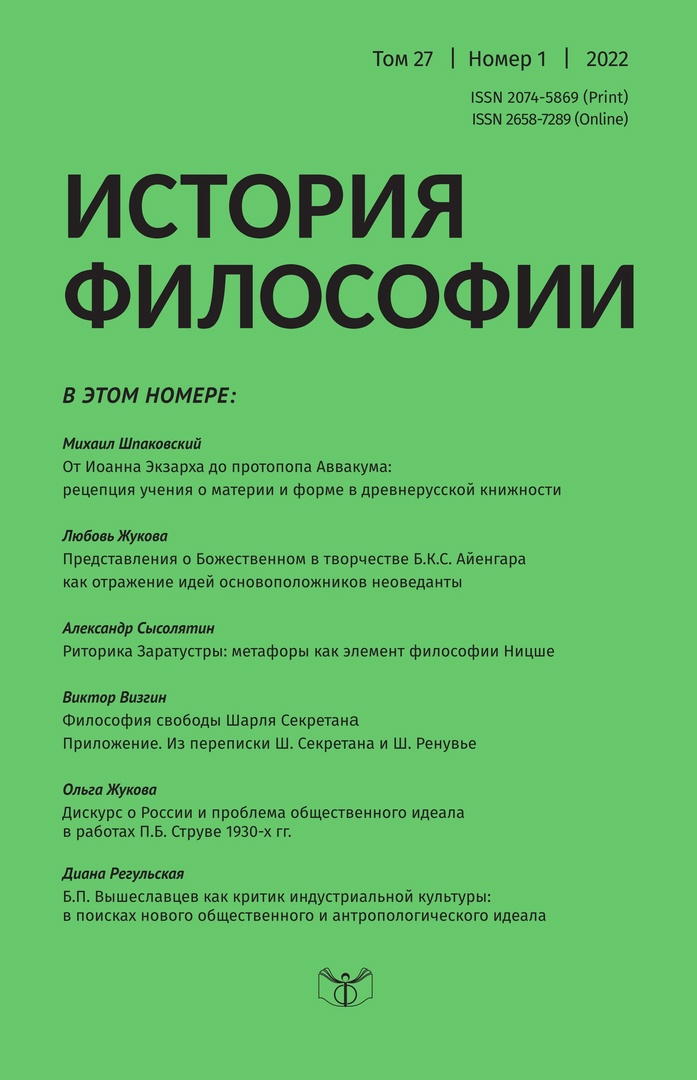From John the Exarch to Protopope Avvakum: the History of Doctrine on Form and Matter in the Old Russian Book Culture
Keywords:
byzantine philosophy, Old Russian philosophy, natural philosophy, form and matter, metaphysicsAbstract
This article considers the history of reception of the form-matter (the hylomorphism) conception, historically raised to Aristotle, in the Old Russian book culture through selected slavonic translations of Church Fathers and the original Old Russian works. Metaphysics itself (especially in the sense of Aristotle’s “Metaphysics”) was not known in the Slavonic book culture. However, such element of it, as a doctrine on form and matter (two of the four Aristotle’s causes), was assimilated by Old Russian scribes in two forms: in the natural philosophy and in logical categorical one. In the first case, this conception is used to interpret the general principles of the creation of the world, according to the first book of Genesis. In the second, the form is one of the types of universals (the lowest and most specialized kind in the hierarchy). Key sources for the first case are follow: Hexameron of John the Exarch and separated places at the Orationes of Gregory the Theologian with Nicetas of Heraclea’s comments. The logical concept of form was known from translations of the logical works of John of Damascus. In the original Old Russian thought of the XVI century, the most popular was the natural philosophical use of these theories in order to describe creation and to criticize the so-called craft-analogies (Joseph Volotskiy, Maxim the Greek, Zinoviy Otenskiy). In the first half of the 17th century, the scholastic theory of the sacraments, together with the new Latinized terminology, penetrated into the Moscow literature through Western Russian writings. Finally, a case of the influence of hylemorphism is also found in the “The Book of Denunciation” of Protopope Avvakum.

